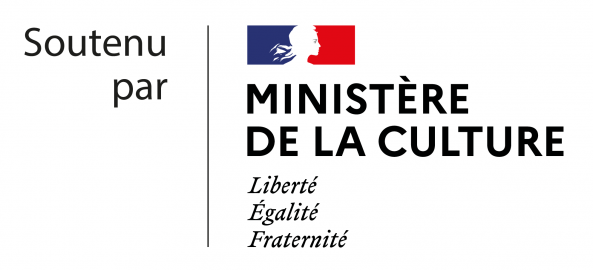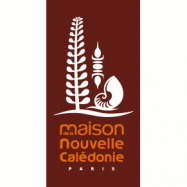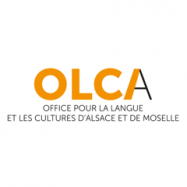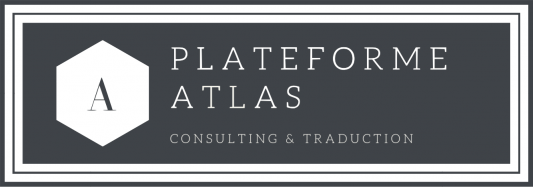LinguaLibre
Difference between revisions of "About/eo"
(Created page with "Discord <br/><small><small>''(franclingva)''</small></small>") |
(Created page with "Projekto ĉe Meta") |
||
| Line 50: | Line 50: | ||
<div style="text-align: right;"> | <div style="text-align: right;"> | ||
[https://discord.gg/ufkEcGs <span class="mw-ui-button mw-ui-neutral" role="button" aria-disabled="false" style="margin-right: 15px; margin-bottom: 11px;">Discord <br/><small><small>''(franclingva)''</small></small></span>] | [https://discord.gg/ufkEcGs <span class="mw-ui-button mw-ui-neutral" role="button" aria-disabled="false" style="margin-right: 15px; margin-bottom: 11px;">Discord <br/><small><small>''(franclingva)''</small></small></span>] | ||
| − | [https://meta.wikimedia.org/wiki/Lingua_Libre <span class="mw-ui-button mw-ui-neutral" role="button" aria-disabled="false" style="margin-bottom: 11px;"> | + | [https://meta.wikimedia.org/wiki/Lingua_Libre <span class="mw-ui-button mw-ui-neutral" role="button" aria-disabled="false" style="margin-bottom: 11px;">Projekto ĉe Meta</span>] |
<br> | <br> | ||
[https://lingualibre.org/wiki/LinguaLibre:Chat_room <span class="mw-ui-button mw-ui-neutral" role="button" aria-disabled="false" style="margin-right: 15px;">Konversacejo</span>] | [https://lingualibre.org/wiki/LinguaLibre:Chat_room <span class="mw-ui-button mw-ui-neutral" role="button" aria-disabled="false" style="margin-right: 15px;">Konversacejo</span>] | ||
Revision as of 10:45, 5 March 2021
"Lingua Libre" estas la projekto de asocio "Wikimédia France", kiu celas konstrui kunlaboran multlingvan plurmedian korpuson sub libera permesilo por:
- disvastigi scion pri lingvoj kaj per lingvoj per plurmedia maniero en la reto, je projekto Vikimedio kaj ekster ĝi;
- Subteni disvolvon de retaj lingvaj komunumoj - precipe de malabunde financitaj, de minoritatoj, de nurparolaj aŭ gestaj lingvoj - por helpi al la komunumoj akiri retan informon kaj garantii vivkapablon de lingvoj de la komunumoj.
Kiel partopreni?
Vi povas uzi la Lingvan Libron esplorante kaj reuzante registraĵojn, kontribui la korpuson per registri vorojn aŭ plibonigante la retejon mem kun konsultado kun la komunumo.
Langeto de la Registra asistanto ebligas registri mallongajn sonojn (1 vorto, 1 esprimo), kategorigi kaj publikigi ilin je Wikimedia Commons per kompitilo aŭ saĝtelefono. Por fari tion vi devas sinprezenti aŭ krei la konton de uzanto. La gvidlibro de uzanto estas je helpa paĝo.
Por ŝanĝi paĝojn de la retejo simple sinprezentu kaj alklaku Redakti (aŭ Traduki). Por aldoni paĝojn plu faru du paŝojn: entajpu la titolon de paĝo, kiun vi deziras krej en serĉilo kun antaŭvorto LinguaLibre:". Aperos la mesaĝo invitanta vin krei la paĝon. Por iu ajn komenca ŝanĝo antaŭe bonvolu konsulti la komunumon.
Kial partopreni?
Lingua Libre comes from the observation of several lacks on Wikimedia projects and on the web in general:
- Lack of diversity: While the web is in theory open to everyone, its content is far from representing all languages proportionally. More than 50% of websites are in English; only 301 of the world's 7000+ languages have a free encyclopedia [1], with a content that is inferior in quality and quantity to those of more endowed languages such as Wikipedia in English[1],[2]. In addition, these websites host content that broadly reflects and meets Western standards and needs through the medium of the written word, which explains and helps to perpetuate their lack of linguistic diversity.
- Lack of orality: Although languages are essentially spoken (only 4,000 of the world's 7,000 languages have a writing system)[4], knowledge sharing and communication via new information and communication technologies (NICTs) is mainly done in writing, particularly on the web, despite the rich multimedia format it allows. This mediation of the oral through the written word raises many barriers to contribution, such as the use of Unicode characters, the culture of the written word, the orthographic standardisation of the language or the literacy rate of the community.
- These lacks of diversity and orality limit the ability of Internet users to communicate and contribute online to various web platforms where they cannot find content and communities sharing their language. Among the regional minority languages that are oral or signed, they threaten in particular the poorly endowed ones, many of which are currently in danger of extinction and for whom inclusion on the web is a major challenge and opportunity.
- Indeed, of the 7000 languages in existence today, it is estimated that only 2500 will survive to the next century and only 250 (less than 5%!) will make their digital ascent — i.e. be used regularly for communication purposes in the digital space by native speakers who are comfortable on the web — a factor which is yet essential for their vitality[5]. Current initiatives by linguists and activists to document and share data, resources and content online in the languages to be preserved do not directly contribute to the development of a digitally-ascendant linguistic community of Internet users, and thus remain limited in their impact.
- Lingua Libre aims to make up for this lack of support by placing itself at the service of linguistic communities wishing to insert and promote their language into the digital space by exploring alternative means of communication to the written word, in the hope that this will free up online communication in a growing number of languages. This objective favours by its very nature regional minority languages that are poorly endowed in terms of oral or signed language, but also benefits more endowed languages that wish to highlight their oral and visual aspects. To fulfil its mission, Lingua Libre offers an online solution for mass recording, leading to the publication of a collaborative multilingual audiovisual corpus under free licence, whose vocation is information through consultation, and revitalisation by triggering the contribution of new language communities on Lingua Libre and then outside.





